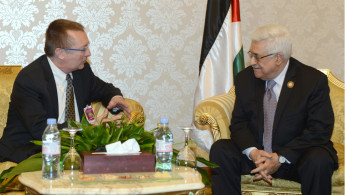UN political chief in Kuwait to discuss Qatar blockade
The senior UN envoy stepped in as Arab states vowed to maintain their boycott of the emirate, jointly criticising its "negative" response to their list of demands to end the crisis.
Saudi Arabia and its allies the United Arab Emirates, Egypt and Bahrain were meeting Wednesday in Cairo one month after they severed ties with Qatar, accusing Doha of supporting extremism.
Their list of 13 demands includes Doha ending support for the Muslim Brotherhood, closing Al Jazeera, downgrading diplomatic ties with Iran and shutting down a Turkish military base in the emirate.
Feltman, who is UN under-secretary-general for political affairs, "is there currently to discuss with a broad range of interlocutors the ongoing crisis in the region and other conflicts," said UN spokesman Stephane Dujarric.
UN Secretary-General Antonio Guterres dispatched Feltman to the Gulf after meeting with Qatar's Foreign Minister Sheikh Mohammed bin Abdulrahman Al-Thani last week.
Feltman arrived in Kuwait from the United Arab Emirates and will travel to Doha later this week.
The United Nations has backed efforts by Kuwait to mediate an end to the crisis and has also offered to help broker a solution.
The four Arab nations seeking to isolate Qatar for its alleged support for terrorism issued a statement earlier saying that Doha’s response to their demands to end the crisis was “not serious.”
Wednesday’s statement came after foreign ministers from Egypt, Saudi Arabia, the United Arab Emirates and Bahrain — the Arab states involved in the dispute with Qatar — met in Egypt’s capital after receiving Doha’s response to their list of demands.
Egyptian Foreign Minister Sameh Shukri told reporters at a joint news conference in Cairo that Qatar’s response was “generally negative” and failed to “lay the foundation for Qatar’s reversal of the policies it pursues.”
He also described Doha’s response as a “position that reflects a failure to realize the gravity of the situation.”





 Follow the Middle East's top stories in English at The New Arab on Google News
Follow the Middle East's top stories in English at The New Arab on Google News

![Israeli forces ordered bombed Gaza's Jabalia, ordering residents to leave [Getty]](/sites/default/files/styles/image_330x185/public/2176418030.jpeg?h=a5f2f23a&itok=_YGZaP1z)
